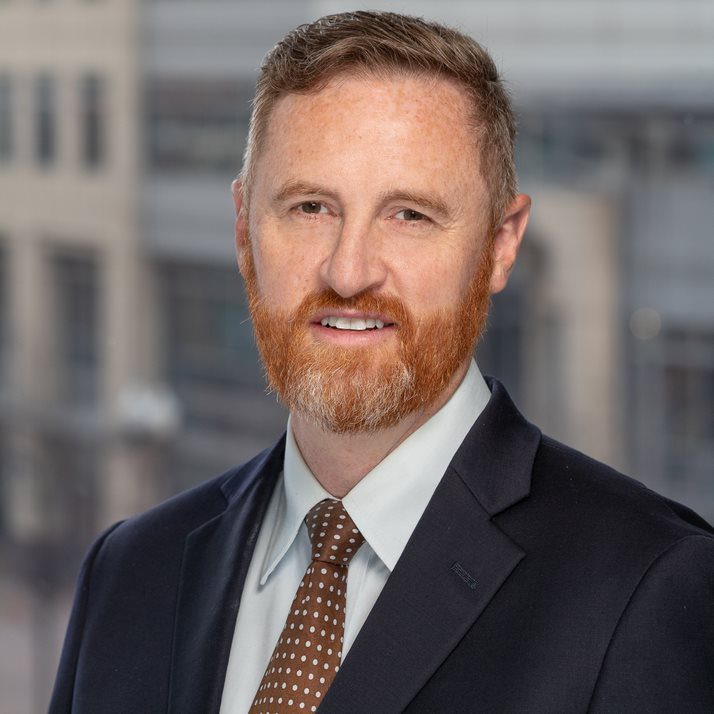
The finalists for WashingtonExec’s Pinnacle Awards were announced Oct. 13, and we’ll be highlighting some of them until the event takes place virtually Dec. 8.
Next is Artificial Intelligence Industry Executive of the Year (Public Company) finalist Ian McCulloh, who’s chief data scientist at Accenture Federal Services. Here, he talks key achievements, shaping the next generation of industry leaders, career advice and more.
What key achievements did you have in 2021?
There are three key achievements I’m particularly proud of this year. First, we launched a data science and machine learning benchmark assessment for our 200+ data scientists. The assessment generates an automated, individualized training path for precision upskilling to ensure Accenture is delivering the best data scientists in the industry for our federal clients.
Second, we adjusted our internal processes for networking and knowledge/resource sharing to accommodate a larger remote workforce. This has continued our culture of rapidly accessing knowledge and resources across the company to solve client problems quickly, while increasing retention well above industry norms.
Third, we expanded our basic and applied research program in the area of artificial intelligence, partnering with a dozen universities, allowing us to accelerate transition from state-of-art to client mission success.
What was a turning point or inflection point in your career?
My time at West Point was certainly a turning point. I was an Army officer in my second command excelling in a traditional command track. As my unit was preparing for the invasion of Iraq, the Army realized I had been in command well beyond the maximum time allowed and I needed to change command.
I was fortunate the Army let me pursue graduate school with follow-on service as a math instructor at West Point. This ultimately led to my earning a Ph.D. in computer science from Carnegie Mellon and establishing the Army’s Network Science Center, advancing a new scientific approach to intelligence, targeting and operations in Afghanistan and Iraq.
The Army gave me a solid leadership foundation, followed by a deep technical education that prepared me well for technical leadership positions through the rest of my career.
What are you most proud of having been a part of in your current organization?
I’m most proud of three things. During the COVID pandemic, we took a different approach to estimating the spread of the disease. Given the high numbers of asymptomatic patients that exhibit no symptoms yet still spread the disease, coupled with symptomatic patients that did not seek medical attention, epidemiology models based on reported case counts was horribly flawed.
We developed a model using data and parameters from clinical trials or more controlled natural experiments that we could validate from serology tests in New York, Texas and Florida. This allowed us to publish the most accurate model of COVID available to provide federal clients with accurate 21-day forecasts of COVID risks impacting opening/closure of federal offices.
We were also able to simulate the impact of return-to-work policies and safety measures on offices to allow a faster return to mission, while protecting the federal workforce.
Secondly, we have also made advancements with responsible artificial intelligence. With increasing concerns around “black box algorithms” and equity in AI systems, we have demonstrated the importance of data rationalization and data labeling consistency.
Accenture’s federal applied research group has published findings that demonstrate the impact of labeling consistency on AI system performance. Not only does the AI work better; we find that most of the issues with equity, bias and discrimination actually occur at the point where humans are labeling the data, well before they are touched by an algorithm trained on those data. Our approach, therefore, places greater focus on the entire AI system and achieves more equitable and higher-performing AI solutions.
I’m also proud of our evidence-based Women in Data Science program. A key difference in our WiDS program is our focus on studying the literature to identify scientifically supported barriers to equity in typical organizations. We then designed a program, based on the literature, to eliminate those barriers. Women participating in the pilot program achieved a 20% increase in performance ratings compared to their historical performance and compared to those that did not participate in the program.
We are expanding this program this year. This program is particularly important to me as we employ more than twice the industry average of women data scientists and want to make sure they can make their maximum impact for our federal clients.
What are your primary focuses going forward, and why are those so important to the future of the nation?
As data volume and velocity increase at an exponential rate, compute and store costs increase at a rapid pace and solutions take longer to train and develop. What’s more, imbalanced data introduces bias and equity challenges into AI solutions.
We have shown that our approach effectively baselines human systems, improves consistency and quality of data labels, focuses on feature engineering and assesses equity and bias in the data prior to algorithms. This approach improves system performance and precision; increases trust and transparency; and ensures fair, equitable, responsible AI solutions.
Adopting this approach is important because it not only reduces cost and wasteful spending. It improves performance and the equitable services the U.S. can provide to citizens.
How do you help shape the next generation of government leaders/industry leaders?
I maintain an adjunct faculty appointment at Johns Hopkins University, where I continue to teach graduate courses in the computer science and systems engineering programs. I also serve on the board of several graduate programs to shape curriculum and education to produce future technology practitioners and leaders.
What’s your best career advice for those who want to follow in your footsteps?
Focus on the mission and client outcomes over your personal career ambitions. You will feel better about leading a series of successful projects than to achieve titles without making impact. Good organizations will reward your impact and success.

